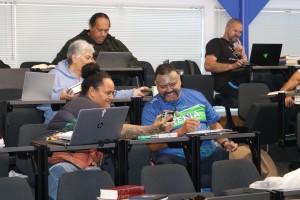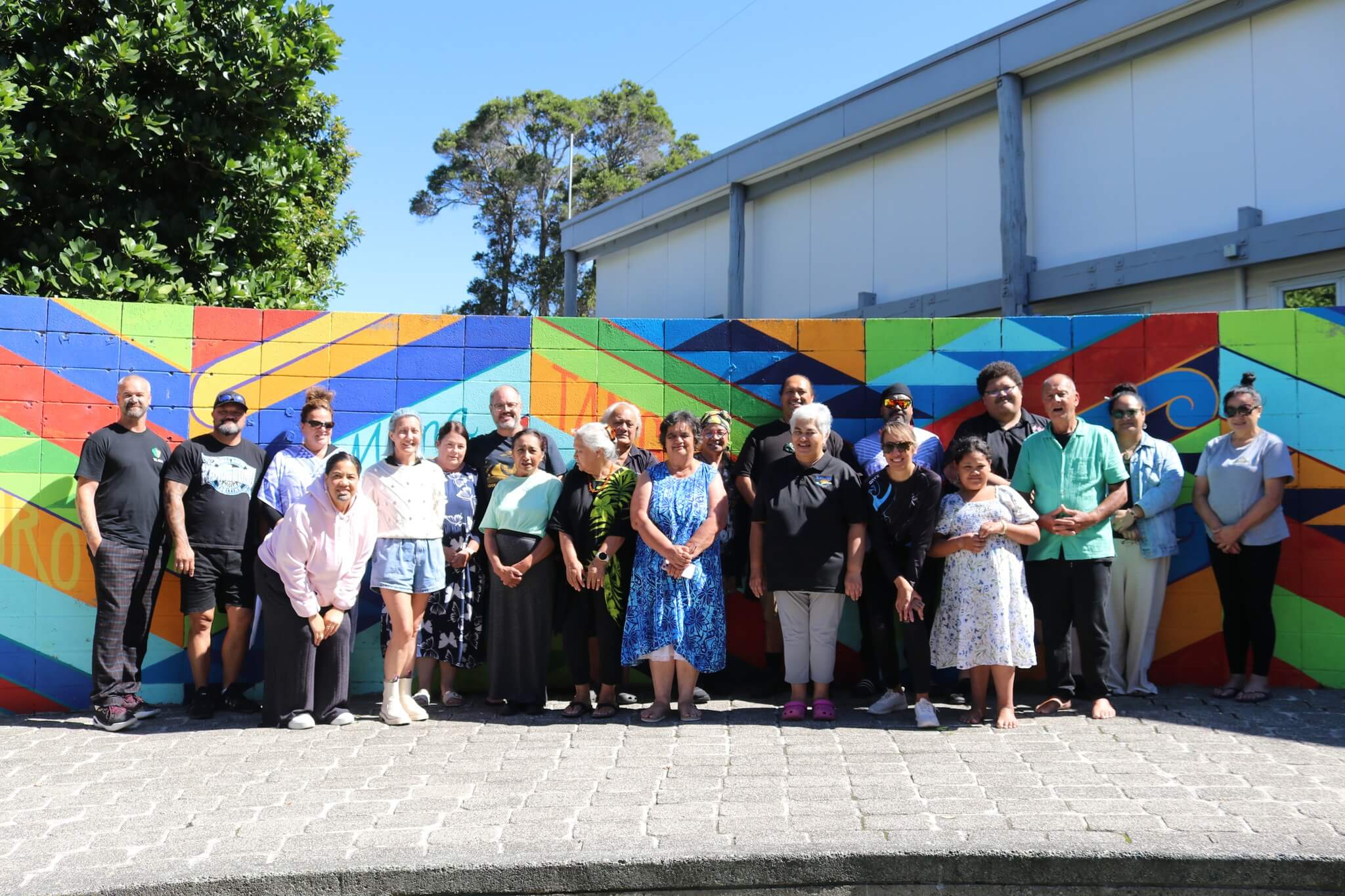Larissa Ruru (Ngāti Kahungunu) is on a journey of faith, culture, and calling. She’s currently studying Te Takawai, a diploma in Christian ministry through Te Rau Theological College and St Johns Theological College, with plans to be commissioned as a Kaikarakia in May 2025.
Based in Napier, Larissa works full-time as a whānau support worker with Roopu A Iwi Trust, where she helps facilitate hui and walk alongside whānau through challenging times. “My mahi gave me confidence I didn’t know I had,” she says. “It helped me to even consider stepping into ministry — but I still asked for a year to really think about it.” That year turned into wānanga, weekly service, and finding herself slowly, humbly drawn to the front.

Larissa with her new classmates
Larissa grew up in a whānau where church life was normal. “We were always attached to the church. When I’m around the nannies and papas, it’s just what we do.” She’s also been surrounded by ministry, both Mihinare and Rātana, and always admired the strength of wāhine in those spaces. “What really inspired me were the Morehu wāhine — always awhi-ing, always serving.”
She started driving for the Kahui Wāhine group in Ahuriri. “Next thing I know, I’m wearing the scarf and badge, going to conferences, and signing up for Bible study. Then I’m going to wānanga, signed up to be a Kaikarakia, and thinking, ‘Wait… how did I get here?’” she laughs. “I didn’t think I was ready for that space, but I loved the learning and being around people of faith.”

Group photo with her classmates and Rev. Michael Tamihere (left front), Tumuaki of Te Rau Theological College and teacher of the Liturgy block course
Larissa had tried Bible study through correspondence before, but the format didn’t suit her. “It just didn’t click. But learning through wānanga, delivered in a Māori way — I’m quite enjoying that.” She appreciates how Te Takawai merges theology with te ao Māori. “I thought we’d just study books of the Bible one by one. But it’s different — it weaves in our own worldviews and mātauranga. That makes it real.”
Her first wānanga left a lasting impression. “It was beautiful. Delivered for us. I don’t always get those feelings — but I felt really special.” That wānanga also confirmed what she’d been slowly discerning: that she was exactly where she was meant to be. “There might be doubts in my head, but not about the kaupapa. Just my own self-doubt.”

“My main role is to be at the back. I’m very comfortable working in the back like the marae. It’s scary to move from the back to the front,” she says.
But through wānanga, helping out at services, and being mentored by her Aunty — who she watches set up the altar — she’s growing her confidence. “I like reading scripture now. Just doing little jobs here and there. It’s part of learning.”
One of her assignments involved choosing a himene, waiata or mōteatea and connecting it to scripture. She chose a whānau waiata and was excited to share it back with her whānau — another example of how this study is deeply personal and relational.
The learning is also practical, grounded in real life. “One of the tutors said, ‘We can pray for you to get home safely, but not for you to drive 140km the whole way.’ It made me laugh — but it stuck with me. We have to meet God halfway.”
Larissa describes the whole experience as affirming, encouraging, and even a little luxurious. “We’re so well looked after — our kai, our accommodation, our course fees — we’re very spoilt!”
Living in a homestead by the river, across from Kohupātiki Marae, Larissa is grounded in her whenua and her faith. She’s excited (and nervous) for commissioning, knowing that it marks not an ending, but a beginning. “That’s my biggest thing right now. Once I’m commissioned, that’s when my ministry really starts.”
And while she still loves being in the background, she’s learning to step into the front — not just for herself, but for her people.
